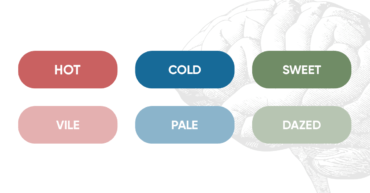May 29, 2020
Ten Sleep Hygiene Strategies to Beat Alzheimer’s

Sleep disruption has long been a noted component of Alzheimer’s, and now it is also being recognized as a risk factor, too. Given the importance of sleep for our cognition and overall well-being, this isn’t surprising.
Sleep helps us move the information we receive during the day from short-term to long-term memory in a process called consolidation. Sleep also allows our brain time for restoration through a process of cleansing and eliminating toxic waste.
As outlined in The End of Alzheimer’s Program, sleep deprivation, especially over an extended period, can obstruct this process. As a result, a lack of adequate sleep can severely affect our cognitive functions, including our ability to concentrate, forge memories, and implement effective decisions.
Over the long term, insufficient or disrupted sleep can lead to health consequences that raise the risk of cognitive decline, such as increased inflammation, a weakened immune system, diabetes, and cardiovascular disease.
Obstructive sleep apnea, which lowers oxygen saturation at night, is emerging as an important, modifiable risk factor for Alzheimer’s. This typically, but not always affects those who snore. Because there are also many “silent apneics,” everyone should know their nighttime oxygen saturation, which can be tested through continuous pulse oximetry, either through a formal sleep study or home testing with a device such as the Wellue 02Ring. Healthy people typically have oxygen saturation between 96-99%. During the night, your goal is to maintain oxygen levels around 95-98%, ideally as close to your daytime levels as possible.
All of the above are reasons we have made sleep the foundation of the KetoFLEX 12/3 lifestyle, and the entire Bredesen Protocol is founded upon the underpinning of restorative sleep.
Ten Effective Sleep Hygiene Strategies
Falling asleep at night is difficult and even stressful for many people, so maintaining effective sleep hygiene may require effort and advanced planning. Fortunately, sleep practices can be improved with practice. Here are ten sleep hygiene strategies to maximize the amount and quality of your sleep that can help protect your brain.
- Sleep at least seven to eight hours per night. Studies reveal the negative effects of sleeping less than six hours and more than nine hours per night. If possible, try to establish and maintain a regular bedtime and wake-up time.
- Identify your personalized circadian rhythm. Every person has a unique internal sleep-wake pattern. Align your sleep schedule with this cycle to maximize restorative sleep, restore cognition, and increase productivity.
- Don’t eat for at least three hours before bedtime. In doing so, you promote autophagy, which is a bodily mechanism to clean out damaged cells and remove cellular waste products. Sleeping on an empty stomach is also much easier.
- Skip coffee after noon. Avoid caffeinated beverages or other stimulating supplements in the afternoon. Any caffeine drank later in the day will affect your ability to fall and stay asleep. Research also indicates that drinking alcohol severely interferes with our REM sleep cycle, which can affect memory integration.
- Exercise earlier in the day. Exercise raises adrenaline and deters sleep. Try to avoid exercise and any stimulating activities for at least three hours before you sleep.
- Make your bedroom your sanctuary. Keep your bedroom clean and organized, free from work or other projects. It’s best to avoid having a television in the bedroom.
- Keep the temperature low. Research indicates that maintaining a bedroom temperature of approximately 65 degrees is ideal for sleep. If you get cold, use blankets. Many people find that a weighted blanket not only provides warmth but also helps them sleep better.
- Eliminate light. Make sure your bedroom is entirely darkened when you sleep because any amount of light can disrupt melatonin production. Block blue light by wearing blue-blocking glasses three hours before sleeping.
- Control extraneous noise. If your sleep is interrupted by noise from traffic, air conditioning, heating systems, or neighbors, try a white-noise machine. Many include relaxing nature (rain, wind, or waves) sounds, best enjoyed at a soft volume.
- Practice a mindfulness technique. If you feel stressed and are unable to sleep, try a mindfulness exercise in which you focus on each of your five senses simultaneously. Feel the soft sheets against your skin, smell your bed linens, listen to the sound of your breath, look at the subtle images behind your closed eyes, and taste the clean residue from your brushed teeth. By being fully present — not thinking about the past or future — you can create a sense of calm that’s conducive to sleep. Aromatherapy with lavender also helps to reduce your heart rate, relax your muscles, and aid in deep sleep.




